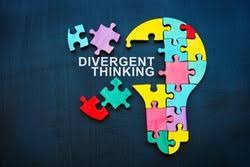🔓 From Paywalls to Picture Panels: Why I Stopped Chasing Peer Review
For years, I played the game:
- Write the manuscript.
- Submit to the journal.
- Wait months for reviewers to decide if my ideas were “rigorous enough.”
And when the paper finally got published — it disappeared. Hidden behind a paywall that families, educators, and students could never access.
That’s when it hit me: 👊 What’s the point of knowledge if the people who need it most can’t touch it?
🎓 The Academic Return: Prestige Without Reach
Peer review has its place. It gives structure, credibility, and validation. But outside of the academy, the ROI is almost zero. You don’t get paid. You don’t get reach. You get another citation in a system that feeds itself.
It’s a game that ends with tenure, not transformation.
🎨 The Real Return: Turning Research Into Stories
So I made a different choice. Instead of fighting for visibility in journals, I decided to translate my research into something families could feel — graphic novels, characters, decoding adventures, and humor that invite every reader in.
Each book, each panel, each pronunciation symbol carries the same intellectual depth — just delivered through color, rhythm, and story.
What used to live behind paywalls now lives in classrooms, libraries, and living rooms.
🌍 Knowledge Belongs to the People
I no longer measure success by impact factor. I measure it by the student who finally sees himself in Doctor Dyslexia Dude. By the parent who says, “Now I understand what decoding really means.” By the teacher who uses pronunciation symbols to open the dictionary — not just assign it.
That’s the real ROI: Reach. Ownership. Illumination.
✍🏾 Final Thought
Scholarship shouldn’t be trapped in journals. It should breathe — in stories, in images, in the lives it changes. That’s why I stopped publishing for permission, and started creating for transformation.
Sincerely,
Shawn Anthony Robinson PhD




Comments
Post a Comment